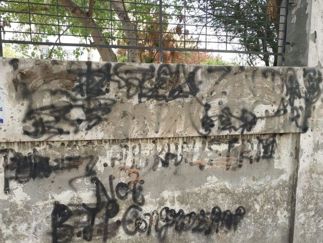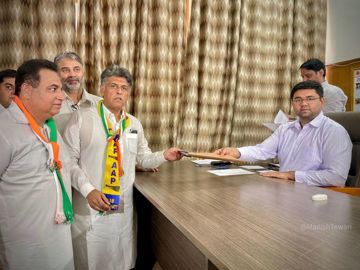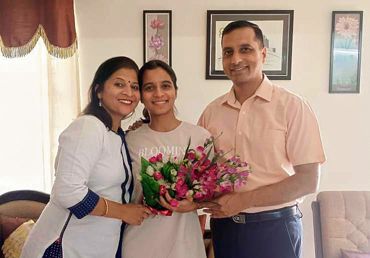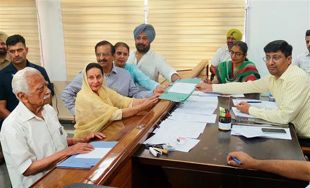
Q.I was given possession of a flat in one of the towers in a builder project in March, 2016. However, two more towers there are under construction and it may take 2-3 years for completion of the project. The builder got deposited Rs 1.30 lakh towards IFMS at the time of possession. Now from April 2016 the builder is demanding Rs 3500 plus service tax towards monthly maintenance charges without specifying the rate per sq. ft maintenance charges even when major infrastructural facilities like club- pool, gym etc are yet to be constructed. (is service tax payable on maintenance charges). Please advise if monthly maintenance charges are to be paid immediately after possession then what is the purpose of IFMS and where it will be used by the builder. — Harinderpal Singh
A.It would be advisable to look into your agreement with the builder. If the agreement so provides that even after the payment of IFMS, the maintenance charges are payable, you would be liable to pay such charges in accordance with the terms agreed by you. In case the agreement does not provide for the same, you may contest the demand made by the builder on the basis that such charges are in accordance with the agreement entered into with builder.
Stamp duty on selling inherited plot
Q.My father had purchased a plot measuring 2400 sq. ft. on 25.04.1997 for Rs 67,200 in Lucknow (UP). He died in December 2004 and as per his Will, he had kept that plot in my name and left other properties in the name of my mother and brothers. I came to know about this only recently. I want to sell this plot now and my mother and brothers do not have any objection to this. However, I have the following queries:
1. Whether it is mandatory to first get it transferred and registered in my name and that only afterwards can I sell this?
2. If so, then do I have to pay stamp duty?
3. The stamp duty will be on the basis of past value, circle rates or the present market value?
4. What will be the amount of capital gain if the approximate selling value is Rs 30,00,000
5. Whether the gains received after selling it shall be long-term capital gain from the date of its registration in the name of my father or I will have to wait for three years after getting it registered in my name?
6. What are the rates of short term and long term capital gain tax? And what will be better for me? — vijay laxmi singh
A.Your queries are replied hereunder:
1. You have not indicated in the query whether the plot had been purchased by your father from a private developer or from a government authority. You can approach the developer or the authority for transferring the plot in your name on the basis of the Will of your father. In case they refuse to do so, you will have to get it transferred in your name by obtaining a probate of the Will, on the basis of which it will be transferred in your name. The process of obtaining a probate is time consuming as you will have to approach the Jurisdictional Court for obtaining probate of the Will. You should, therefore, try the first option of getting it transferred in your name on the basis of the Will in the records of the developer or the authority from which the plot was purchased.
2. No stamp duty should be payable in case the transfer is effected by the developer or the authority in their records. However, the duty and other charges payable for obtaining the probate will have to be ascertained from a civil lawyer who will have to be engaged for the purpose.
3. The amount of capital gain on the basis of the figures given in the query would be 27,71,601.
4. It would be a long-term capital gain and the indexation would be allowable from the date when the plot was purchased by your father in view of the recent decisions of the courts. You do not have to wait for a period of three years.
5. The short-term capital gain is chargeable at the normal slab rate. In other words it is aggregated with your other income and tax is payable at the applicable rate on the basis of the total income.
6. Long-term capital gain is chargeable @20% plus education cess of 3% thereon.
Builder can’t refuse to credit TDS on full amount
Q.Kindly clear my doubt regarding TDS deduction on property on the basis of following details:
1. I bought a plot from a private builder in December 2014 and paid 25 per cent of the deal value.
2. One per cent TDS on property wasn’t deducted and neither was it submitted to the IT department.
3. Now while making the balance 75 per cent payment, in May 2016, I have deducted the TDS on the entire value and paid the builder accordingly along with Form 16 (for the amount deducted)
4. But the builder has refused to credit the TDS amount on 25 per cent payment, quoting they have closed their books for 2014-15. They have given the credit for TDS on 75 per cent payment.
5. Is it possible to get the credit of TDS deducted (on 25 per cent) from the builder? If not, then how can I apply for refund from IT department on the same? — Harsh Jasrotia
A.The builder can’t refuse credit for the amount of TDS deducted by you. The builder is entitled to get the credit for the entire amount in the year in which it has been deducted by you and, therefore, you have to contest this aspect with the builder. The builder cannot refuse to allow your credit as he would be entitled to adjust the entire payment of TDS in the year in which tax has been deducted at source.
When should TDS be deducted?
Q.I booked a flat having total cost of around Rs 55 lakh. The said flat is under construction. The payment to the builder is construction linked. I have so far paid Rs 20 lakh as part-payment. As per Section 1941A of the Income Tax Act, 1961, the buyer of any immovable property (other than agriculture land) having total consideration of Rs 50 lakh or more is liable to deduct Tax at source (TDS) @ 1% at time of payment to seller. I seek your clarification in respect of the following :
1. Whether 1% TDS is to be deducted at the time when the total payment exceed Rs 50 lakh or it would be deducted irrespective of amount (part payment) to be paid to the seller. Kindly clarify. — P.K. Verma
A.Section 1941A of the The Act does not provide any indication as to when tax should be deducted where the value of the property exceeds Rs 50 lakh and payments towards the total consideration are made in installments. It would, therefore, be advisable to deduct tax at source from each of the installments paid.
The relevant challan is considered to be a certificate for deduction of tax at source, a copy of which can be given to the builder for his records.
Can interest paid to bank be included in cost of flat?
Q. I purchased a flat in Delhi on 05.02.2010 (registered value of Rs 10 lakh) and paid Rs 5 lakh for its renovation. This was sourced from house loan of Rs 15 lakh from ICICI Bank. I also spent Rs 60,000 as stamp duty and Rs 8,273 as loan processing fee for the same. The interest and principal paid to the bank is as follows :
I also paid loan reschedule charges of Rs 7,912 on 20.09.2013. The principal and interest paid to bank were reflected in the income tax returns and deductions/benefits taken accordingly.
Now I have sold the said flat for Rs 22 lakh on 19.04.2016. I paid Rs 50,000 as commission to dealer + Rs 6,500 on commuting to Delhi for transfer and Rs 6,987 for house tax at the time of sale (all receipts procured).
I also intend to buy a flat at Mohali for Rs 7 lakh within six months of the sale. I own another self -occupied flat in Chandigarh on home loan. Kindly answer the following queries :
1. Whether the interest paid will be added to the cost of the flat?
2. What is the capital gain for Delhi flat?
3. Whether I can invest only the amount of capital gain for purchase of another flat at Mohali or the full money received will have to be invested?
4. Can I keep the funds in my savings account till the purchase within six months?
5. What are the methods available to avoid tax on this entire deal ? — Ajay Aggarwal
A.Your queries are replied hereunder:
1. You have indicated in the query that you have been allowed deduction in respect of the interest paid to bank against your income. The amount of interest so paid can’t therefore be included as part of the cost of flat.
2. The indexed cost of the flat on the basis of the figures
given in the query works out at Rs 27,76,899. This computation has been made on the presumption that you have the necessary evidence supporting the expenditure on renovation of the flat and that renovation expenditure and stamp duty charges were incurred before March 31, 2010. On the said basis, therefore, there would be a long-term capital loss of Rs 6,26,899. Such loss can be carried forward for a period of eight years and can be adjusted against long-term capital gain.
3. This question would not arise as there is a capital loss.
4. In view of the fact that there is no capital gain on the sale of the flat, you can keep the funds in your savings account.
5. This question would also not arise as on the basis of the indexed cost no capital gain has arisen on which tax may be payable.
Email your queries to [email protected]



























